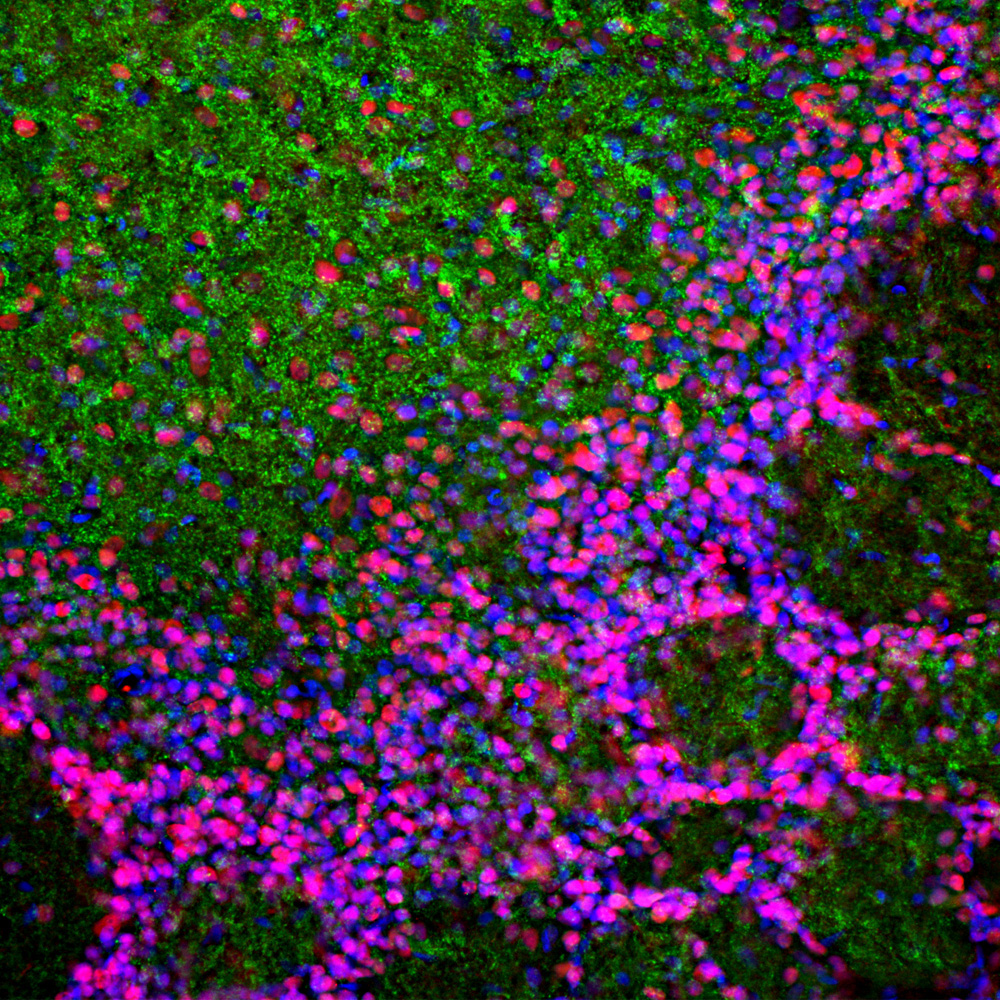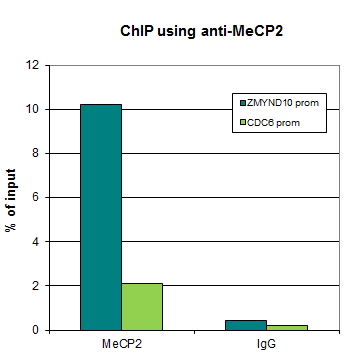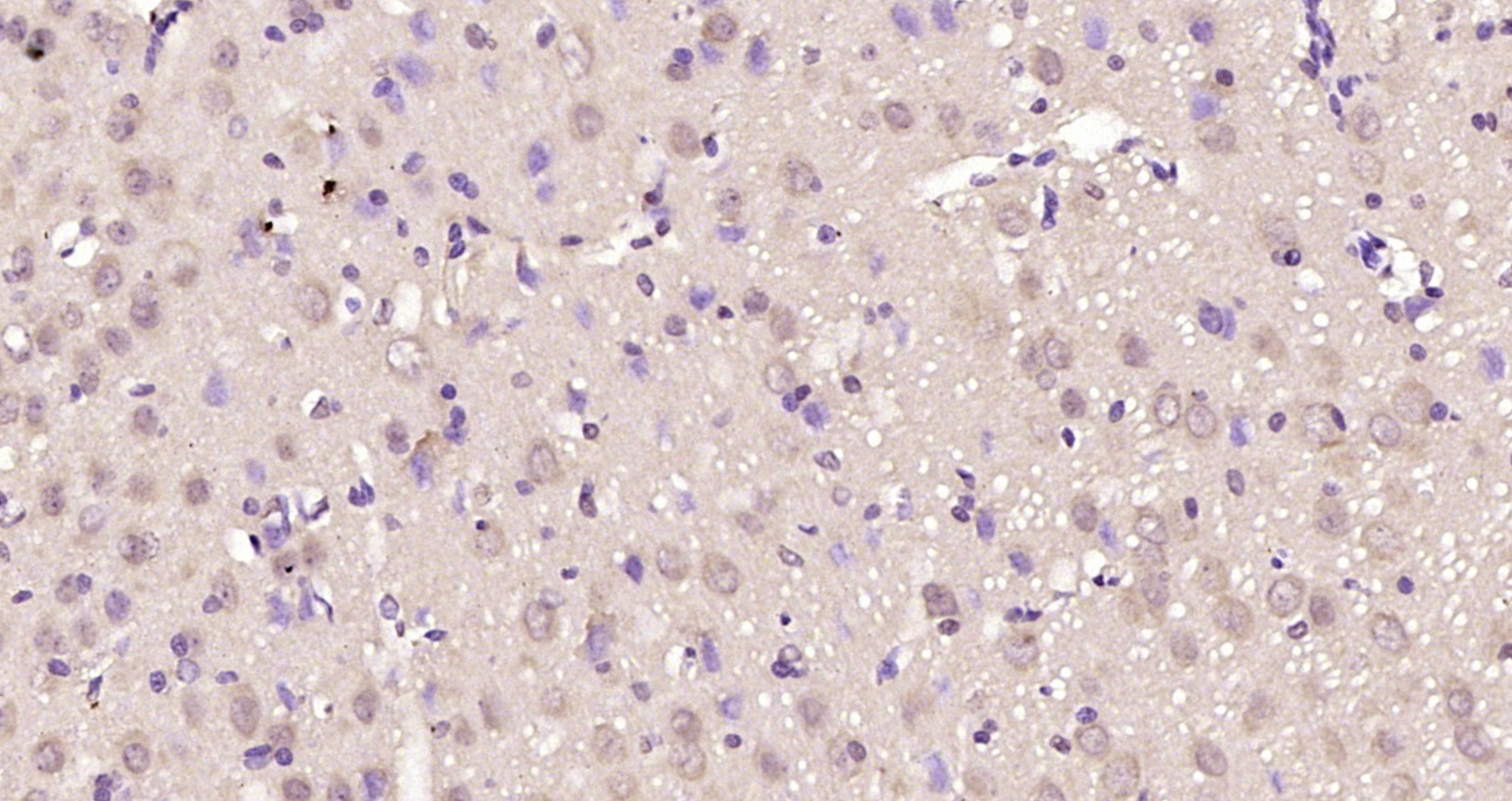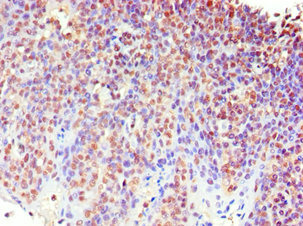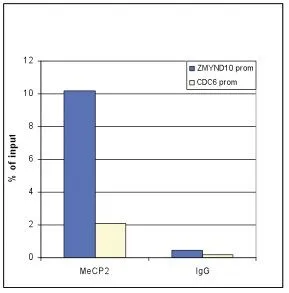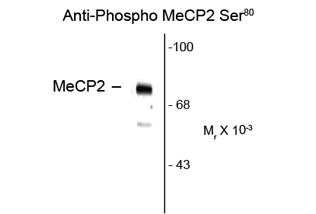
Western blot of neonatal rat brain showing specific immunolabeling of the ~75k MeCP2 protein phosphorylated at Ser 80 using MeCP2 (phospho Ser80) antibody (GTX82658).
MECP2 (phospho Ser80) antibody
GTX82658
ApplicationsWestern Blot, ImmunoHistoChemistry
Product group Antibodies
ReactivityHuman, Mouse, Rat
TargetMECP2
Overview
- SupplierGeneTex
- Product NameMECP2 (phospho Ser80) antibody
- Delivery Days Customer9
- Application Supplier NoteOptimal working dilutions should be determined experimentally by the end user.
- ApplicationsWestern Blot, ImmunoHistoChemistry
- CertificationResearch Use Only
- ClonalityPolyclonal
- ConjugateUnconjugated
- Gene ID4204
- Target nameMECP2
- Target descriptionmethyl-CpG binding protein 2
- Target synonymsAUTSX3, MRX16, MRX79, MRXS13, MRXSL, PPMX, RS, RTS, RTT, methyl-CpG-binding protein 2, meCp-2 protein
- HostRabbit
- IsotypeIgG
- Protein IDP51608
- Protein NameMethyl-CpG-binding protein 2
- Scientific DescriptionDNA methylation is the major modification of eukaryotic genomes and plays an essential role in mammalian development. Human proteins MECP2, MBD1, MBD2, MBD3, and MBD4 comprise a family of nuclear proteins related by the presence in each of a methyl-CpG binding domain (MBD). Each of these proteins, with the exception of MBD3, is capable of binding specifically to methylated DNA. MECP2, MBD1 and MBD2 can also repress transcription from methylated gene promoters. In contrast to other MBD family members, MECP2 is X-linked and subject to X inactivation. MECP2 is dispensible in stem cells, but is essential for embryonic development. MECP2 gene mutations are the cause of most cases of Rett syndrome, a progressive neurologic developmental disorder and one of the most common causes of cognitive disability in females. Alternative splicing results in multiple transcript variants encoding different isoforms. [provided by RefSeq, Oct 2015]
- ReactivityHuman, Mouse, Rat
- Storage Instruction-20°C or -80°C,2°C to 8°C
- UNSPSC41116161
References
- Association of CaMK2A and MeCP2 signaling pathways with cognitive ability in adolescents. Lee LC et al., 2021 Oct 4, Mol BrainRead this paper

